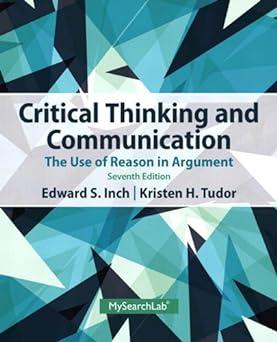8. Remarks by the president at the Martin Luther King, Jr. Memorial Dedication, October 16, 2011, http://www.whitehouse.gov/the-press-office/2011/10/16/remarks-president-martinluther-
Question:
8. “Remarks by the president at the Martin Luther King, Jr. Memorial Dedication,” October 16, 2011, http://www.whitehouse.gov/the-press-office/2011/10/16/remarks-president-martinluther-
king-jr-memorial-dedication (accessed May 9, 2013).
And then when, even after the Civil Rights Act and the Voting Rights Act passed, African Americans still found themselves trapped in pockets of poverty across the country, Dr. King didn’t say those laws were a failure; he didn’t say this is too hard; he didn’t say, let’s settle for what we got and go home. Instead he said, let’s take those victories and broaden our mission to achieve not just civil and political equality but also economic justice; let’s fight for a living wage and better schools and jobs for all who are willing to work. In other words, when met with hardship, when confronting disappointment, Dr. King refused to accept what he called the “isness” of today. He kept pushing towards the “oughtness” of tomorrow. And so, as we think about all the work that we must do—rebuilding an economy that can compete on a global stage, and fixing our schools so that every child—not just some, but every child—gets a world-class education, and making sure that our health care system is affordable and accessible to all, and that our economic system is one in which everybody gets a fair shake and everybody does their fair share, let us not be trapped by what is.
We can’t be discouraged by what is. We’ve got to keep pushing for what ought to be, the America we ought to leave to our children, mindful that the hardships we face are nothing compared to those Dr. King and his fellow marchers faced fifty years ago, and that if we maintain our faith, in ourselves and in the possibilities of this nation, there is no challenge we cannot surmount. This chapter provided a number of strategies arguers could use to relate their arguments to the orientations of their audiences and to enhance their own credibility. These included the following:
A. Use premises the audience accepts.
B. Use audience values and principles for supporting your reasoning.
C. Cite authorities the audience is likely to respect.
D. Use novel evidence.
E. Keep the audience interested and involved in the argument.
F. Focus on issues the audience is likely to be concerned about.
G . Be aware of possible audience objections and reservations.
H. Appear attractive, and emphasize similarities you share with the audience.
I. Emphasize your own and your source’s experience with the topic.
J. Use unbiased and reluctant testimony.
K. Avoid inconsistency.
L. Craft your narrative so that it has probability and fidelity for your audience.
Examine each of the arguments below in which the speaker or writer adheres to or violates one or more of these strategies. Decide whether the audience would respond more or less favorably to the argument because of what is said. Also, decide which of the strategies the arguer uses or violates.
Some information about the audience is provided.
Step by Step Answer:

Critical Thinking And Communication The Use Of Reason In Argument
ISBN: 9780205925773
7th Edition
Authors: Edward S. Inch, Kristen H. Tudor






